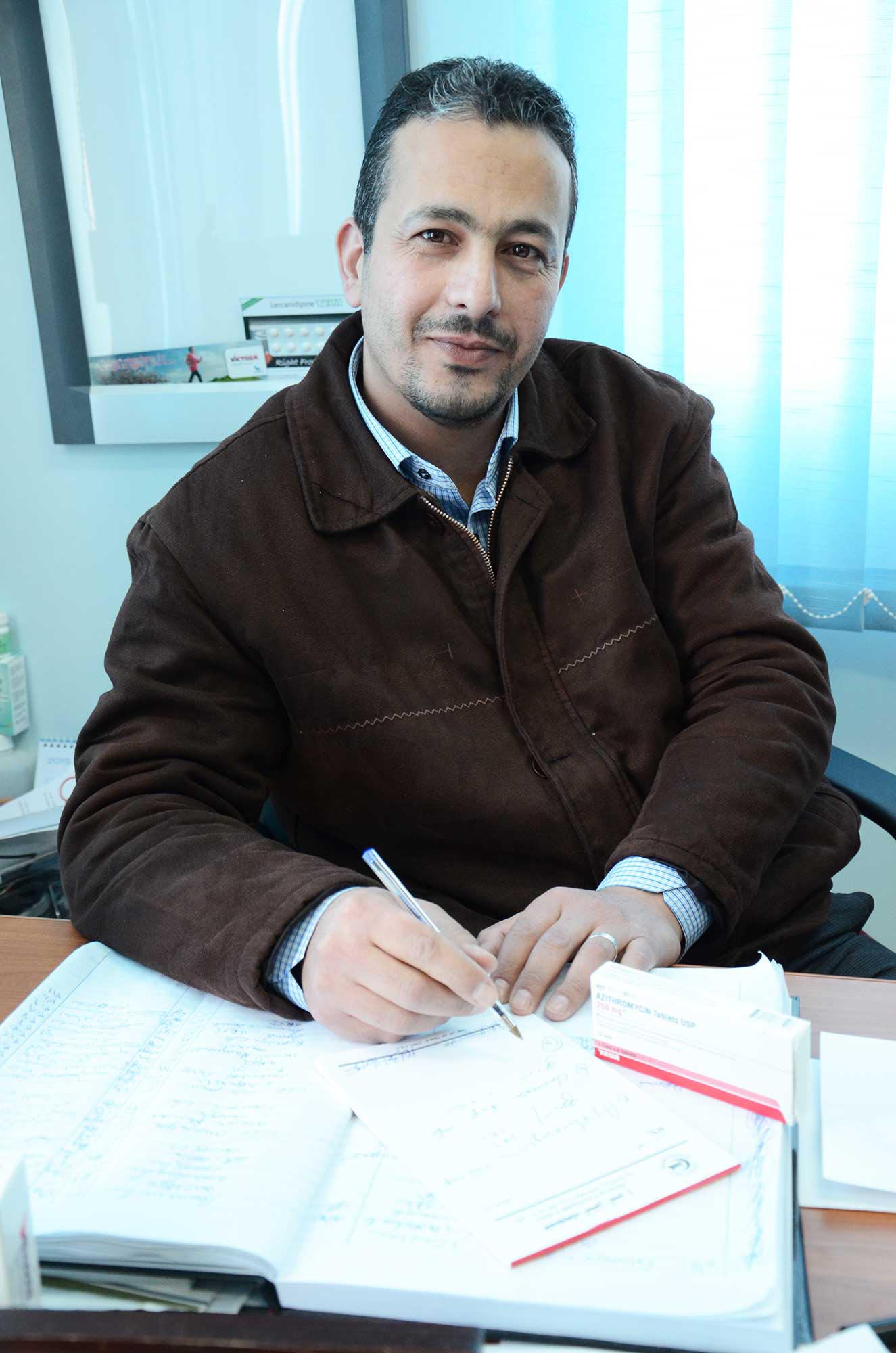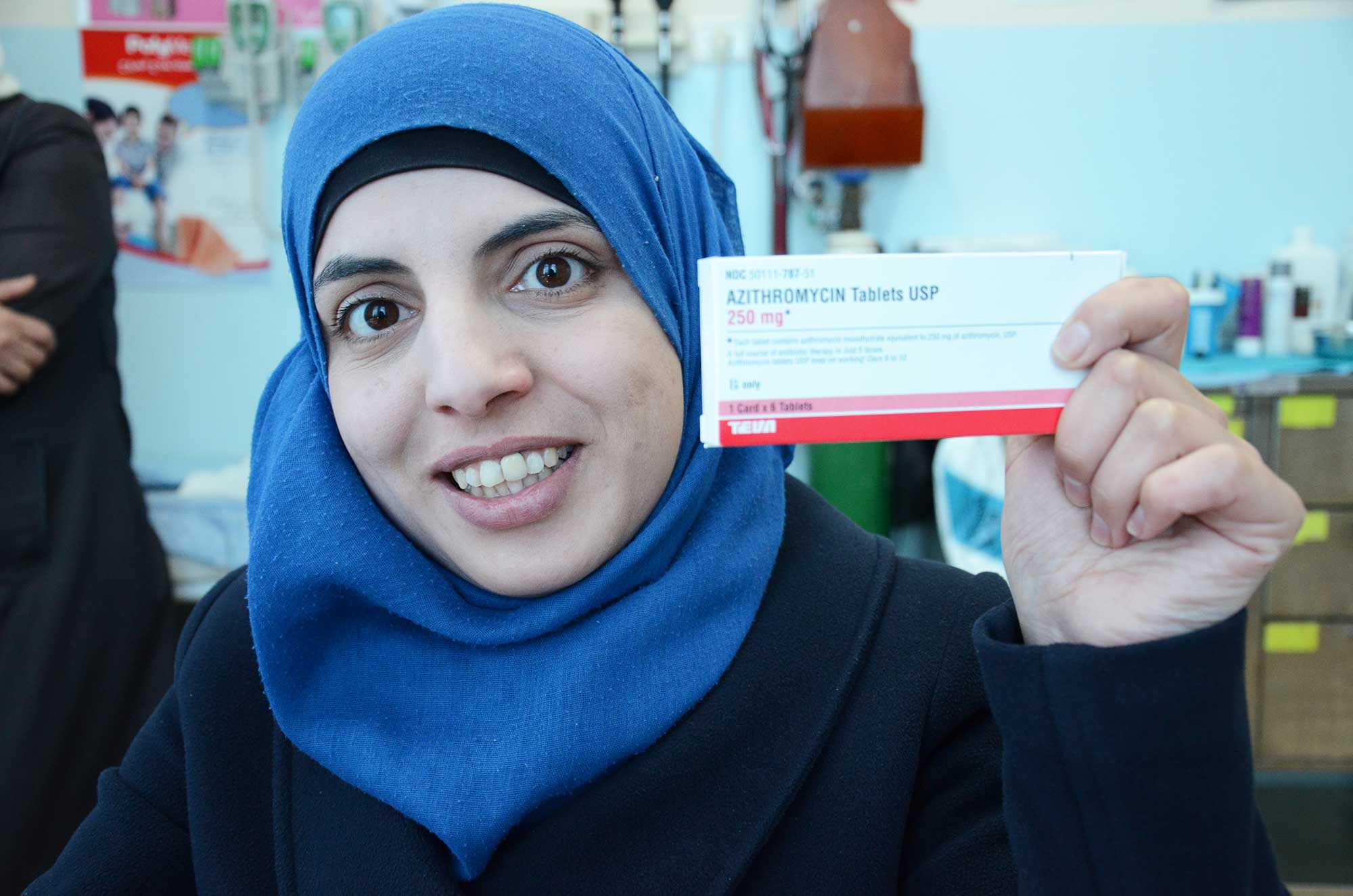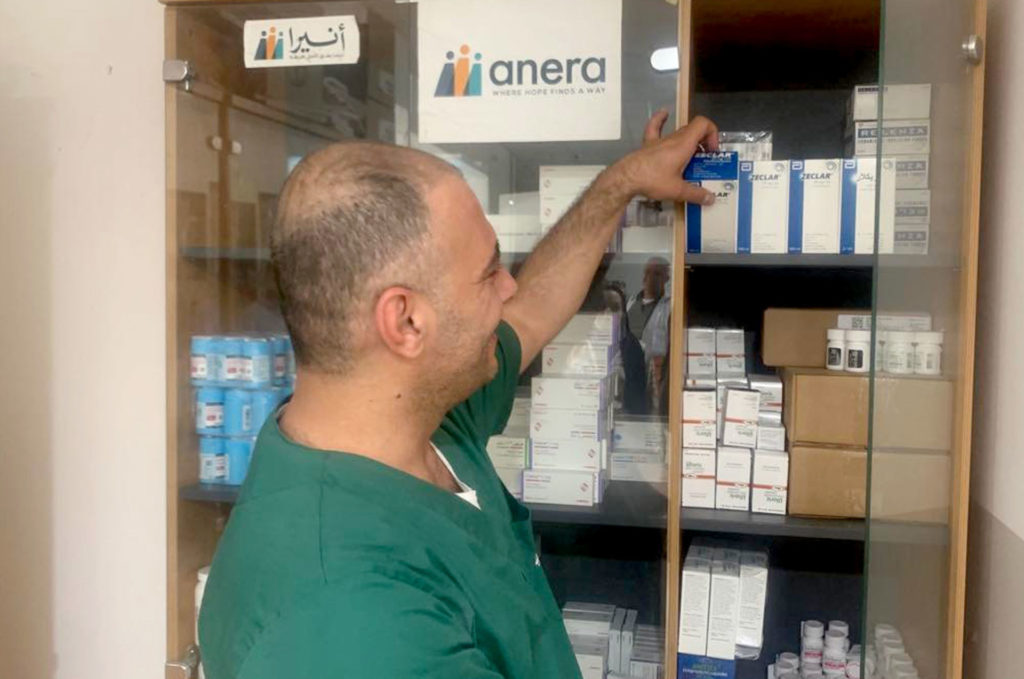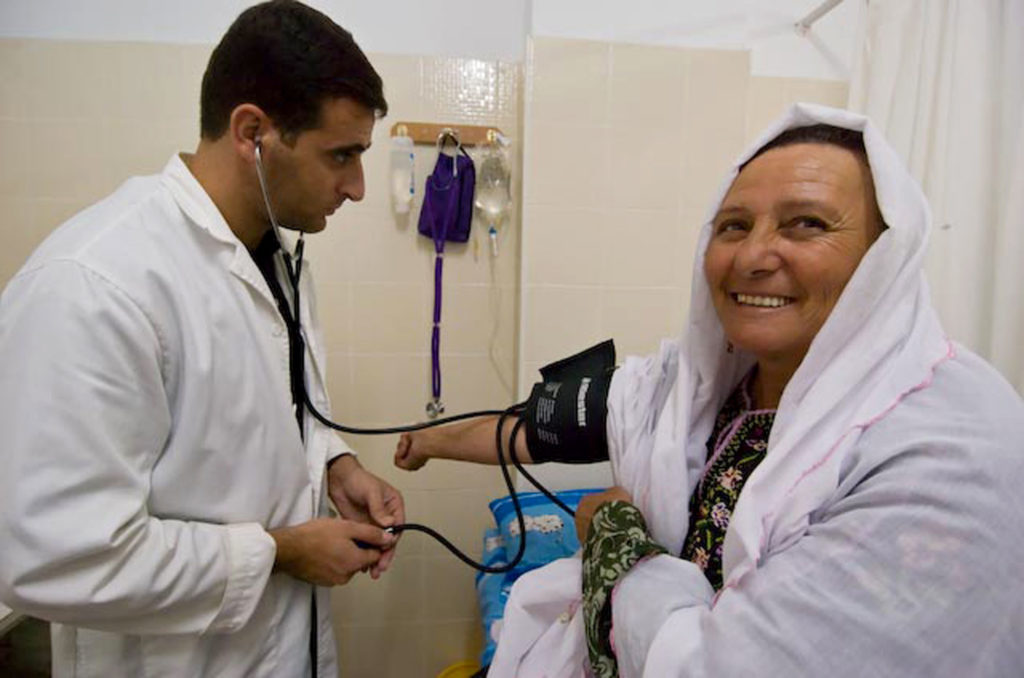Mar, 2015
Dozens of patients feeling under the weather sit waiting their turn to see the doctor at Hebron’s charitable medical center.
“Fluctuating weather conditions, such as the conditions we are currently experiencing, can weaken one’s immune system, making it more susceptible to bacteria and germs that thrive in such a habitat,” explains Wael Rajabi, the medical center’s family doctor.
Luckily for the center’s patients, Anera recently received a shipment of medicine from Catholic Medical Mission Board (CMMB), which included a large donation of Azithromycin antibiotics. Anera delivered the medicine to several charitable clinics, centers and hospitals in the West Bank, including Hebron. The medication is given free of charge to the neediest patients.
And, it’s not just the patients who benefit. The donated medicines help the charitable center sustain its services. “When antibiotics that are chronically needed each winter are donated to us, it eases our financial burden,” says Dr. Rajabi. “When fundamental medications fill our shelves, it allows us to provide our patients with other vital medications and services that otherwise might be unavailable or unaffordable.”


Like several healthcare providers across the West Bank, the Hebron center has a longstanding partnership with Anera, which provides nearly 75% of the center’s medicine supply. These donations are considered the center’s driving force. Significant donations like the recent supply from CMMB have enabled the center to use its resources to renovate and upgrade the facility to provide even better services for their patients. They were able to move their center from the ground floor of an old building, where tiny rooms had poor ventilation and served many purposes, to an upper level floor occupying a larger area with a subsequently larger number of patients. There is now a separate room for dentistry and one for gynecology, a waiting area, and a pharmacy with an attached storage room.
Hebron Clinic Doctor Educates Patients
Patients fill the hallway of the center during morning hours but Dr. Rajabi doesn’t complain. He welcomes each patient with a warm smile and reassuring voice. But he does raise concerns about some of patients’ detrimental practices. “I’d say that almost 60% of our patients come here for a check-up as a last resort after taking various types of antibiotics without consulting a doctor,” he explains.


When 30-year-old Suzanne Al-Natsheh steps into his office with her complete blood count (CBC) results, Dr. Rajabi’s suspicions are confirmed: She has a secondary atypical viral infection that has developed into acute sinusitis. The doctor suspects her deteriorating condition is the result of an earlier faulty diagnosis and incorrect treatment.
Like many of Dr. Rajabi’s patients, she has been treating herself with different antibiotics for two months without getting rid of her infection. “What patients don’t realize is that by taking antibiotics without a doctor’s prescription, they are wasting time and money,” he says, “And, what’s worse, is they are endangering their health.” He predicts that if Susan takes the antibiotics donated by CMMB she will fully recover within a week.
Dr. Rajabi says he always takes time for some health education at the end of a treatment session to explain just how important it is to get a proper check-up first to get the right medicine. “Taking course after course of antibiotics arbitrarily could make the body less receptive and cause the condition to worsen, especially if it’s the wrong treatment. By getting the right diagnosis from the outset, you can guarantee a safe and speedy recovery.”


